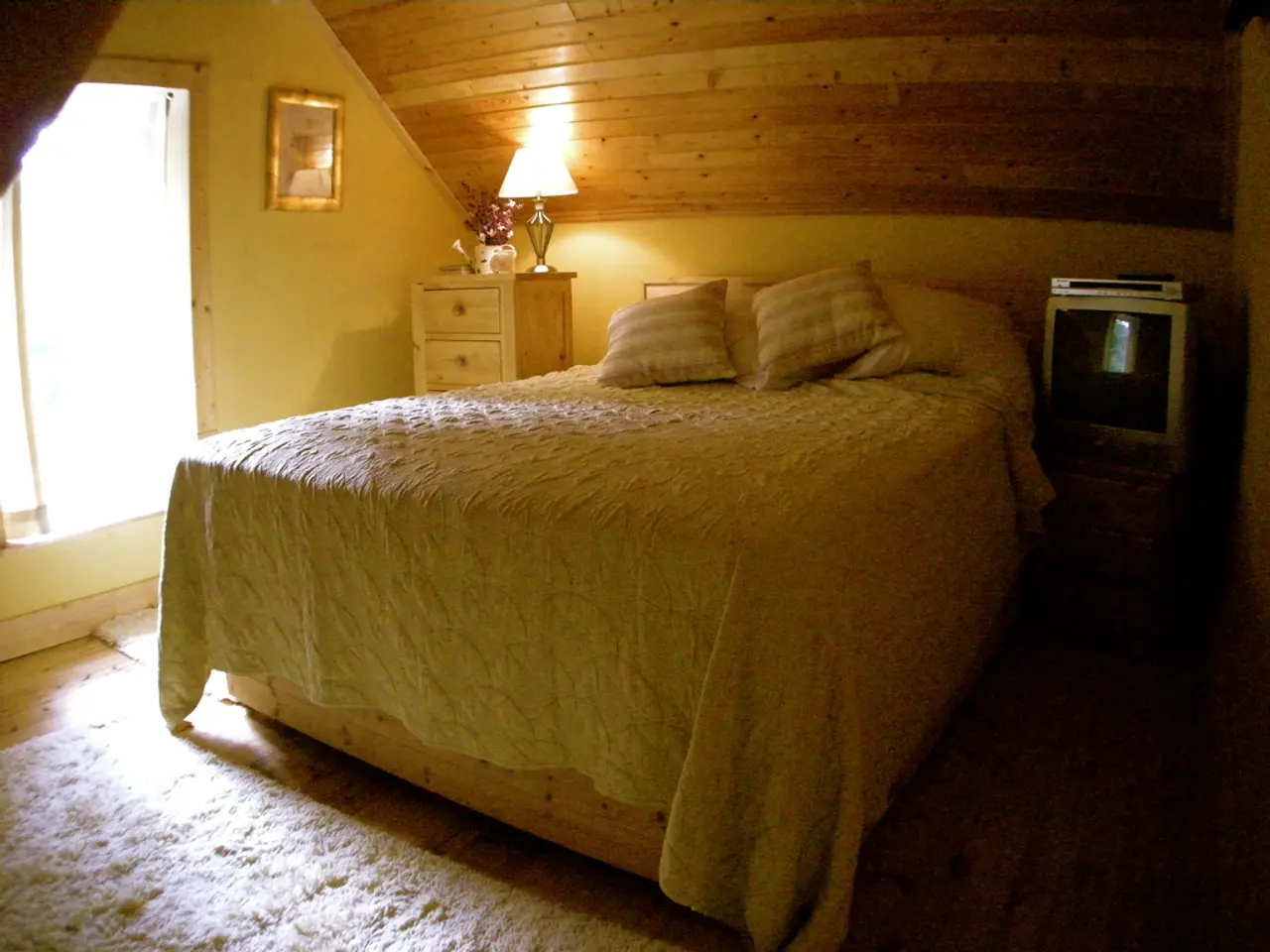In Germany, is it possible to secure a lower rent due to excessively high temperatures in your apartment?
In the heart of Germany, tenants living in rental properties that experience excessive interior heat may find themselves eligible for compensation or rent reduction. This situation, known as a rental defect (Mietmangel), arises when the interior temperature of a flat exceeds the acceptable range of 26-28°C, significantly diminishing habitability.
The process of claiming a rent reduction or compensation typically involves several steps:
- Documenting the Problem: Tenants should gather evidence of the excessive heat issue, including temperature readings, photos, and any health or comfort impacts. Keeping a daily record of when the temperature in the flat exceeds 26°C is essential.
- Notifying the Landlord: The tenant must formally inform the landlord of the problem in writing, requesting remediation or a rent reduction. Reporting the problem to the landlord in writing, with a note that you will only be paying the rent 'under reservation', is necessary.
- Allowing Time for Repair: The landlord is given a reasonable timeframe to address the problem, such as improving insulation, installing shading, or implementing ventilation.
- Rent Reduction Claim: If the landlord fails to fix the issue, tenants can reduce their rent proportionally to the degree of impairment (Minderung der Miete). This is regulated under German tenancy law (§536 BGB). Rent reductions typically reflect the extent to which the defect affects use of the property.
- Legal Action if Needed: If necessary, tenants can seek judicial enforcement of rent reduction or claim damages.
It's important to note that the amount of rent reduction depends on the severity of the heat build-up and the duration of high temperatures. Successfully proving a rental defect can result in a 20% rent reduction for the days the flat exceeded the temperature limit, with typical reductions varying widely but often falling in the range of 10% to 30% of the net rent.
Heating costs (Warmmiete) are separate from the base rent (Kaltmiete), but rent reductions due to habitability issues focus on the net rent portion. Utility or energy costs are typically charged based on actual consumption or flat rates separately and may not be reducible just because of excess heat.
When it comes to addressing heat issues, it is safer to discuss heat reduction measures with the landlord before taking external measures like installing awnings, cooling blinds, or air conditioning. Installing a permanent air conditioning unit requires landlord permission due to its need to be mounted on an external wall, and arrangements for removal upon moving out should be clarified. However, renters are allowed to get a mobile air-conditioning unit at their own cost, which doesn't require landlord permission as it doesn't require structural changes.
Factors such as living in a top-floor apartment, an old building, or having large windows can make it harder to get a rent reduction approved, even if the temperature exceeds 26°C. If the landlord disputes the claim or refuses to remedy the problem, tenants can pursue legal action.
[1] For more information, please refer to the German Tenancy Law (Mietrecht) and relevant court decisions.
If a rental property in Germany experiences excessive interior heat and the landlord fails to address the issue, the tenant may consider investing in a temporary mobile air-conditioning unit to improve their living conditions. However, if the requirement for rent reduction or compensation arises due to a rental defect (Mietmangel), it's advisable to first explore the process of finance-related steps, such as documenting the problem, notifying the landlord, and allowing time for repair. This process follows the regulations under German tenancy law (§536 BGB), potentially resulting in a real-estate rental reduction or even a compensation.




